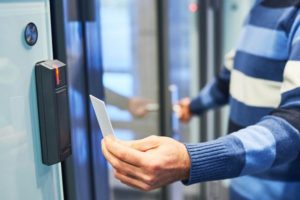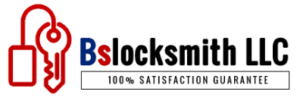Access Control Benefits for Business and Residential Settings

Access control is a security technique that restricts access to buildings, rooms, or specific areas. It is an essential component of maintaining the safety and security of both residential and business settings. Access control systems require individuals to present credentials such as keycards, fobs, mobile apps, or biometrics in order to gain entry. These systems offer numerous benefits, including increased security, convenience, and tracking of entryway activity.
Access control systems have become increasingly popular in recent years due to the rise in security threats and the need for enhanced protection. They provide a reliable and efficient way to manage access to buildings and ensure that only authorized individuals are granted entry. By implementing access control systems, businesses and residential settings can significantly improve their security measures and reduce the risk of unauthorized access.
Benefits of Using Access Control Systems
Increased Security and Unauthorized Access Prevention
One of the primary benefits of using access control systems is the enhanced security they provide. By restricting access to buildings, rooms, or specific areas, these systems effectively keep unwanted visitors out. Unauthorized access is prevented by requiring individuals to present valid credentials before being granted entry. This eliminates the risk of unauthorized individuals gaining access to sensitive areas and minimizes the potential for theft or data breaches.
For example, in a business setting, access control systems can be used to restrict access to certain areas such as server rooms or executive offices. Only employees with the necessary credentials will be able to enter these areas, reducing the risk of unauthorized access to sensitive information or valuable assets.
Access control systems also eliminate the need for traditional keys, which can be easily lost or duplicated.This reduces the risk of unauthorized access through lost or stolen keys. Additionally, access control systems can be particularly beneficial in securing sensitive areas such as data centers or records rooms, where strict control over access is crucial.
Convenience and Freedom for Users
Access control systems offer convenience and freedom for users. Instead of relying on traditional keys, access cards can be easily deactivated and replaced if lost or stolen. This eliminates the need for costly and time-consuming lock replacements. Employees also have more freedom to come and go without relying on security staff to grant them access. This streamlines entry and exit processes, saving time and reducing the need for manual labor.
For example, in a residential setting, access control systems can be used to provide residents with keycards or mobile apps that allow them to enter the building or their individual units. This eliminates the need for physical keys and provides a convenient and secure way for residents to access their homes.
Access control systems also offer flexible access times, allowing for easy adjustment of access permissions. This means that access can be granted to individuals based on specific timeframes, ensuring that only authorized personnel can enter certain areas during designated periods. This level of customization enhances security and control over restricted areas.
Tracking and Monitoring
Another significant benefit of access control systems is the ability to track and monitor entryway activity in real-time. These systems provide detailed information on who enters the facility and at what time, enhancing security and aiding in criminal investigations if necessary. By tracking entryway activity, access control systems provide valuable data that can be used for auditing purposes and improving overall security protocols.
Access control systems also allow for the customization of access parameters for certain individuals at specific times. For example, temporary access can be granted to contractors or visitors during specific hours, ensuring that they only have access when needed. This level of control enhances security by limiting access to authorized individuals and minimizing the risk of unauthorized entry.
For example, in a business setting, access control systems can be used to track and monitor employee attendance. By recording when employees enter and leave the building, businesses can ensure that employees are adhering to their work schedules and identify any potential issues with punctuality or attendance.
Types of Access Control Systems
Access control systems can be managed through various methods, depending on the specific needs of the property. Common methods include key cards, fobs, passwords or PIN codes, biometric verification, and ticketing systems. The choice of access control system depends on factors such as cloud-based management, ease of installation, delivery management, and live video footage. It is important to select a system that aligns with the requirements of the property and provides the desired level of security and convenience.
For example, in a business setting, a biometric access control system can be used to ensure that only authorized individuals are granted entry. This system uses unique physical characteristics such as fingerprints, iris patterns, or facial recognition to verify the identity of individuals. This provides a high level of security and eliminates the risk of unauthorized access through stolen or lost credentials.
In a residential setting, a key card access control system may be more suitable. This system allows residents to use a key card to gain entry to the building or their individual units. The key cards can be easily deactivated if lost or stolen, providing an added layer of security.
Importance of Access Control in Business and IT Security
Access control is crucial for protecting business data and ensuring compliance with data privacy laws. Without proper access control measures in place, businesses are at risk of data loss, theft, and privacy breaches. Access control systems offer peace of mind by providing robust data protection, user permission management, and deterrence against misuse. These systems can be implemented through various methods such as device passwords, VPNs, firewalls, user roles, and encryption.
For example, in a business setting, access control systems can be used to restrict access to sensitive information stored on company servers. Only employees with the necessary credentials and permissions will be able to access this information, reducing the risk of data breaches.
Access control systems also play a crucial role in IT security by ensuring that only authorized individuals have access to company networks and systems. By implementing access control measures such as strong passwords, two-factor authentication, and user role management, businesses can protect their IT infrastructure from unauthorized access and potential cyber threats.
BS Locksmith: Top Access Control Locksmiths in Aurora, CO
At BS Locksmith, we understand the paramount importance of security and convenience in both business and residential environments. Our access control locksmiths offer peace of mind and a tailored solution to safeguard your property while streamlining access for authorized individuals. Whether it’s installing state-of-the-art systems or providing expert guidance on optimizing your security measures, we are committed to delivering top-notch solutions. Elevate your security standards and take control of your access points today with BS Locksmith LLC in Aurora, CO. Contact us to explore how our access control services can enhance your safety measures and offer seamless access management for your property. Your safety is our priority, and we’re here to provide the expertise you need to protect what matters most.
BS Locksmith LLC
2993 S Peoria St Ste 136, Aurora, CO 80014
(720) 372-8021
